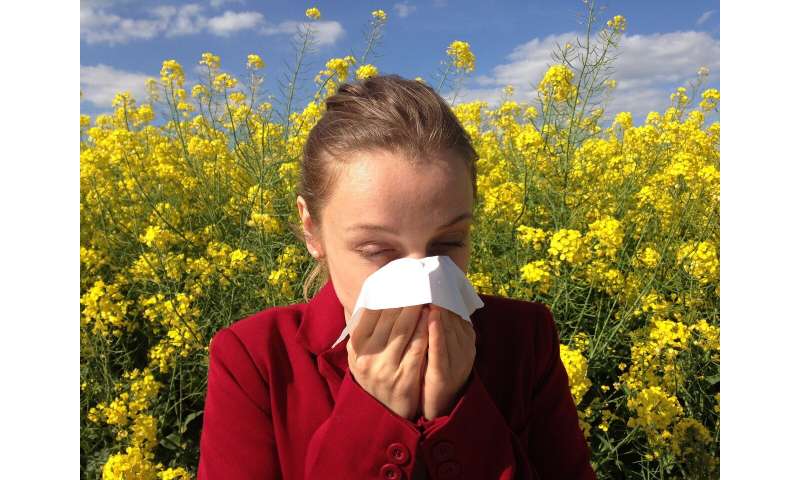
The coronavirus pandemic has emerged as spring arrives and allergy season begins. With that in mind, should you be worried that going “achoo” could be an indicator of COVID-19?
Here’s the difference between allergy symptoms and those of the coronavirus disease 2019.
What is the new coronavirus?
The Centers for Disease Control and Prevention stated coronaviruses are a large family of viruses. The novel coronavirus, which causes the disease COVID-19, is a new disease and is caused by a coronavirus that was not previously seen in humans. Defined as an infectious disease by the World Health Organization, it had been unknown before WHO said it originated as an “outbreak” that “began in Wuhan, China, in December 2019.”
What are seasonal allergies?
The National Institutes of Health noted seasonal allergies, or allergic rhinitis, is common and affects 8% of adults and children in the U.S. Also known as hay fever, allergies cause an immune response in the body to something that causes no problems for most people—pollen from plants.
If you have coronavirus symptoms …
WHO stated they are typically mild and begin gradually. Common symptoms include:
Some people may have these symptoms:
According to WHO, some people become infected but don’t feel unwell or experience any symptoms. Around 80% of people recover from the disease without any special treatment needed. Still, about one in six people becomes seriously ill from COVID-19 and experiences breathing difficulties. Serious illnesses are more likely to occur in people who fall in the CDC’s higher-risk group: people who have serious chronic medical conditions, including lung disease, diabetes and heart disease and older adults. Should people experience difficulty breathing, cough or a fever, they should get medical attention.
If you have allergy symptoms …
The NIH stated they may include the following:
The American College of Allergy, Asthma & Immunology stated that watery eyes can also be a symptom. The professional association also noted that allergies can be seasonal or occur year round.
How can you prevent or treat the coronavirus?
Currently, there is no vaccine in place to prevent COVID-19, according to the CDC. Instead, the agency stated the best way to prevent illness is to avoid exposure by practicing social distancing and washing your hands frequently with soap and water for at least 20 seconds.
Additionally, people should avoid touching their face and if they don’t have soap and water readily available, they should use hand sanitizer that contains at least 60% alcohol.
WHO stated there is no evidence that home remedies, traditional or Western medicine can prevent or cure the disease, but they may be able to provide comfort and alleviate symptoms. The organization doesn’t recommend self-medication as a means of treatment or providing a cure for COVID-19.
How can you prevent or treat seasonal allergies?
The best way to control seasonal allergy symptoms is to avoid triggers, according to the NIH. It’s recommended to wash clothing, hair and bedding—the latter in hot water. Also bathe your pets since they can bring pollen indoors. Upholstered furniture and carpets should be avoided, according to the NIH, because they can harbor allergens. Keep humidity levels low for indoor allergens and vacuum floors once weekly.
Mild symptoms can be alleviated with over-the-counter antihistamines, nasal sprays and decongestants, but severe symptoms may sometimes require prescription medications and allergy shots.
Source: Read Full Article
